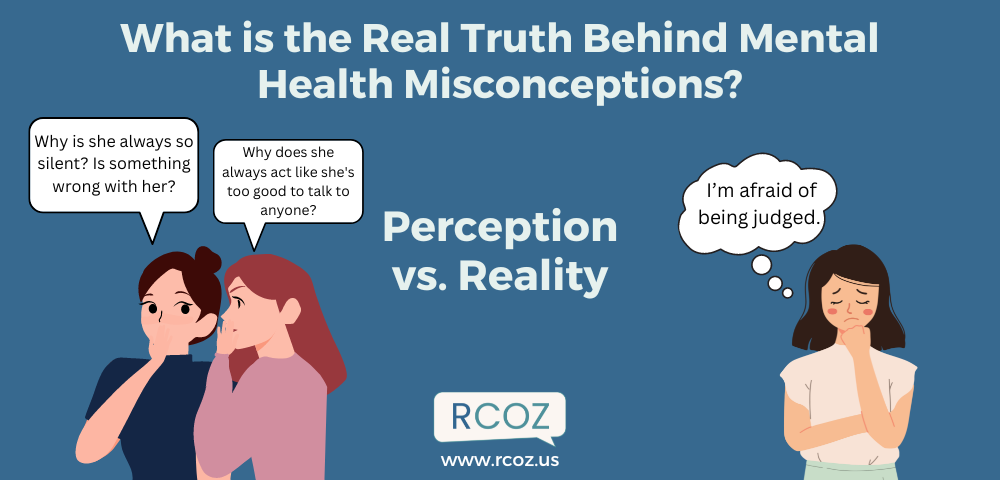Nearly 34% of adults with a mental illness don’t seek out treatment due to concerns about what others may think of them. Mental wellbeing is often ignored and overlooked, and much of it is due to prejudice against people with mental health disorders. Unfortunately, until more recent generations, there hasn’t been enough education on mental health, causing many individuals who are struggling to stay silent due to fear of being judged. These commonly believed stigmas often label others who suffer with mental illnesses as “weak” and “incapable.” Today, we hope to spread awareness and stop the stigma by busting 3 common misconceptions about mental health.
Have you ever heard that teens are “just moody,” or that mental health issues make you weak? These are just some of the misconceptions that are commonly believed in our society.
The first misconception is that “teenagers don’t have poor mental health, they just have mood swings due to hormones.” The real truth is, that although adolescents do have mood swings, it doesn’t mean that they cannot also struggle with mental health. According to UNICEF, almost 14% of total teens in the world experience mental health issues. Reducing their challenges and struggles down to “just hormones” is one of the reasons why warning signs among teenagers are so often misinterpreted and ignored, continuing the cycle of neglect in regards to mental health.
The second misconception is that “a mental health condition means that person is weak; if this person were stronger, they wouldn’t have this problem.” This is untrue in so many ways. Struggling with a mental health condition has absolutely nothing to do with being weak or not having willpower. Anybody, regardless of age, gender, or physical strength can have poor mental well-being. Having these conditions is not a choice, and often, they often stem from more complex problems within the brain, such as faulty mood regulation. (Harvard Health Publishing) Calling someone weak for struggling with their mental health would be as untrue as calling someone weak for having a broken arm or diabetes. In fact, the opposite would be correct: battling a mental health disorder takes a strong will.
The third and final myth we will be busting today is that “people who have perfect lives can’t have mental health conditions because they don’t have anything to be depressed about.” What someone’s life may look like on the surface level has nothing to do with what their mental state is like. Again, as mentioned before, anybody can develop a mental health condition regardless of what their life seems like on the outside or who they are. Wealth, success, or a “perfect life” don’t prevent anybody from developing a mental illness; judging someone’s mental state based on their external life can be one of the primary reasons why there is so much prejudice and misunderstanding.
Sources:
https://etactics.com/blog/statistics-on-mental-health-stigma
https://www.unicef.org/parenting/health/busted-7-myths-about-mental-health

